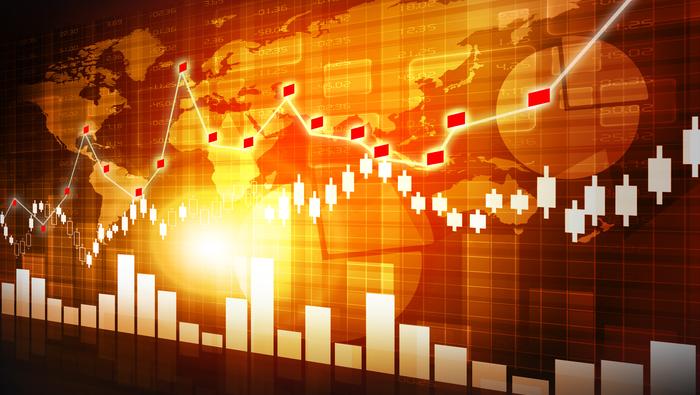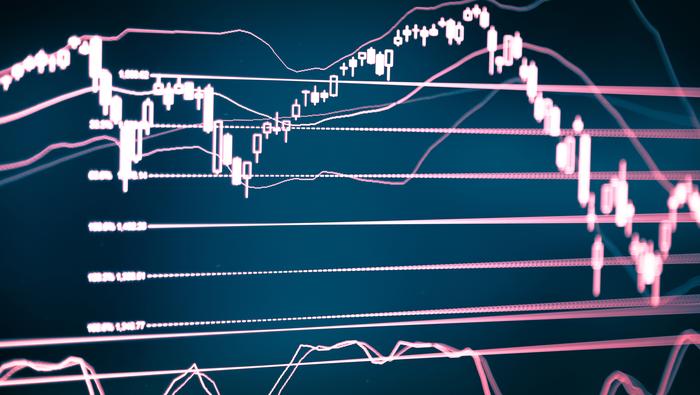Talking points on this podcast:
- Geopolitics and how it hits stocks
- The contagion of geopolitical disruption
- Will it make a difference to the markets who the next US President is?
This time on Trading Global Markets Decoded, our host Martin Essex is joined by Dimitri Zabelin, currency analyst at DailyFX and specialist on how the international political economy affects financial markets. This time, we drill down into the impact of political events on markets. You can listen to this podcast by clicking on the YouTube link above or by using one of the alternative platforms listed below.
Geopolitics and how it hits stocks
The podcast begins with discussion on geopolitics and how it hits stocks. “Particularly now in the current fundamental environment of slower growth… the shock of an unknown geopolitical risk is amplified,” Dimitri says. He gives an example of Italian politics in 2018-19 when there was a budget dispute between Rome and Brussels. “Even just the election of that coalition between the 5 star movement and Lega Nord caused Italian sovereign bond yield tenure to spike over 100% over the course of just a few months.
“Now, were Italy’s economic fundamentals more robust, the economy could theoretically have endured a political shock like that but, because the underlying weakness was already there, the shock [instead] amplified it.” More recently, we have been seeing politics driving a lot of market volatility in 2018, 2019 and 2020, most notably the trade wars, Brexit and escalated tension in Iran.
Dimitri also considers how political risk can’t really be priced in. He points to the instance of US National Security Advisor John Bolton getting fired from the Trump administration, leading to crude oil prices dipping 2%. “In my view that was a reflection that the markets believed that having Bolton in the White House, given his view on foreign policy and attitudes towards Iran, the problem of an escalated conflict and a politically-induced supply disruption fear was comparatively higher. So when he was fired we saw crude oil prices drop.”
Check out our article geopolitics and oil for more on this relationship.
The contagion of geopolitical disruption
Dimitri argues that geopolitical contagion extends beyond coronavirus. “Every year, arguably except for the past two or three, we’ve become more globalized, so the contagion of political risk, much like the coronavirus, is more likely to spread,” Dimitri says. “This is the double-edged sword of globalization. The pro is that hyperconnectedness means that everything is transmitted far more quickly and the con is also that hyperconnectedness means that everything is transmitted far more quickly.
“So be it capital or contagion of some kind, it’s very hard to contain particular economic political disruption in one area and not have it spill into others.”
Political contagion, for example, has been seen in international trade relations, with Dimitri noting that the US-China trade war in 2018 preceded numerous trade wars all around the world.
“That was a manifestation of this political contagion, where [following the US-China trade war] you started [also] having trade wars between the US and the EU, then South Korea and Japan, then Malaysia and India, then India and Brazil, then Iran and Brazil.
“That in my view was a result of our globalized system being hyperconnected economically and politically, and with the US being in such a powerful position they set the stage and the standard for global trading practices.”
Dimitri adds that Trump’s nationalist and populist rhetoric also is liable to spread. “You look at the rhetoric for instance with South Korea saying ‘We will not be defeated by Japan again’. We hadn’t seen this kind of rhetoric before the [US-China] trade war.”
For more ways of listening to the DailyFX podcast, click on one of the additional channels below.
- iTunes: https://itunes.apple.com/us/podcast/trading-global-markets-decoded/id1440995971
- Stitcher: https://www.stitcher.com/podcast/trading-global-markets-decoded-with-dailyfx
- Soundcloud: https://soundcloud.com/user-943631370
- Google Play: https://play.google.com/music/listen?u=0#/ps/Iuoq7v7xqjefyqthmypwp3x5aoi
- Spotify: https://open.spotify.com/show/6FtbTf4iGyxS0jrQ5jIWfo




